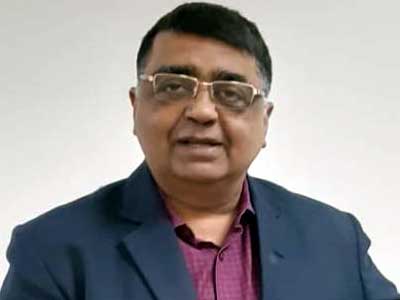Aligarh: “Achieving gender equity is essential for sustainable development, particularly in developing nations where women are more vulnerable to climate change impacts,” said Prof Anuradha Banerjee, Chief Guest at the national seminar on ‘Attaining Sustainable Development: Harmonizing Climate Action, Gender Equity, and Employment Opportunities – A Pathway for Viksit Bharat@2047’.
The seminar, organized by the Department of Geography at Aligarh Muslim University, was part of an Indian Council of Social Science Research-funded collaborative research project titled ‘Explorative Comparative Analysis of Gender-Sensitive Adaptation Strategies to Climate Change and Its Impact on Employment Generation and Sustainable Livelihoods in Two Regions of North India: Western Uttar Pradesh and Western Bihar’.
Prof Banerjee, from the Centre for the Study of Regional Development at JNU, emphasized key strategies to achieve gender equity, such as universal access to quality education for girls, equal pay and employment opportunities, access to healthcare services, political representation, leadership development, strengthened legal frameworks, and enhanced social protection systems and schemes. These initiatives are crucial for building resilience against climate change impacts, particularly for women in vulnerable communities.
In her keynote address, Dr Ellina Samantroy Jena, Fellow at the VV Giri National Labour Institute of Noida, highlighted the importance of addressing climate change to empower women economically. She noted that climate-induced challenges disproportionately affect women, especially due to their unpaid care work responsibilities. Dr Jena called for gender-responsive social protection policies, emphasizing the need for a life-cycle approach and greater investment in care infrastructure and resources accessible to women.
Prof Mohan Singh Panwar, from HNB Garhwal Central University of Uttarakhand, discussed the alarming rate of climate change and its impacts on people in climate-sensitive areas, like mountains and coastal regions. He advocated for Climate Change Action Plans at the Gram Panchayat level to address issues in these vulnerable communities, using West Bengal as a case example where such action plans are discussed at the district level. He also shared insights into the ecosystem of the Himalayas and the challenges posed by climate change.
Earlier, Prof Sartaj Tabassum, Dean of the Faculty of Science at AMU, praised the Department of Geography for hosting the seminar on such an important issue. He urged researchers to contribute their knowledge toward the goal of making India a developed nation.
Prof Shahab Fazal, Chairperson of the Department of Geography, welcomed the attendees, highlighting the department’s historical and ongoing contributions to the field of geography, including its collaboration with ISRO on meteorological data programs. The Department, established in 1924, is the oldest in the country and has played a pivotal role in disseminating and popularizing the field, Prof Fazal noted.
Dr Fatma Mehar Sultana, convenor of the seminar and Project Coordinator for VVB@2047 (ICSSR), explained the seminar’s focus on the three pillars of sustainable development: climate action, gender equity, and employment opportunities.
Co-convenor Dr Hasibur Rahman from HNB Garhwal Central University presented an overview of the research project in Western Uttar Pradesh and Western Bihar, expressing hope that the findings would help contribute to Vision Viksit Bharat@2047.
Dr Mumtaj Ahmad proposed a vote of thanks, while Dr Sadaf conducted the proceedings.
A seminar souvenir and two books authored by Dr Sadaf, as well as, Dr Hasibur Rahman and Dr Sakil Ansari were also released.
Following the inaugural session, a panel discussion on the intersections of climate change, employment, and gender was held. In the technical sessions 25 research papers were presented, addressing various themes aligned with the seminar’s objectives.
The event concluded with a valedictory session featuring Dr Faiza Abbasi, Prof Asad U Khan, and Prof Ateeque Ahmad as guests of honour.
The seminar provided a valuable platform for scholars and practitioners to engage in meaningful dialogue on sustainable development, exploring the critical connections between climate resilience, gender equity, and employment opportunities in India’s journey towards a Viksit Bharat by 2047.












Related Items
Webinar on Gender-Inclusive Leadership for Developed India
Seminar held on women’s contribution to Persian Language
Women’s College wins in Basketball, AMU wins in Volleyball